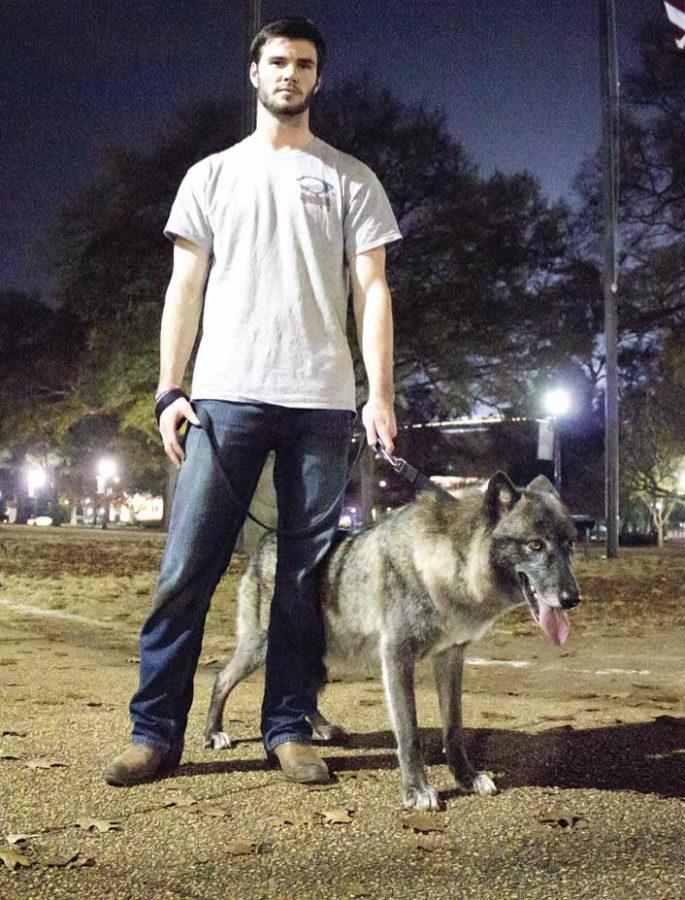While some students have golden retrievers or labradors as college pets, senior Payton Scott has taken a slightly different route.
Scott, a biology major, owns two wolf dogs and has worked with them his whole life.
Though there is a larger wolf dog community in south Florida, Scott currently works at a sanctuary in Birmingham called High Rock Wolf Dog Rescue.
“Wolf dogs are very different from normal dogs, like not even close at all,” Scott said.
Wolf dogs are split into three categories by their percentage of wolf content. Scott’s dogs are near the middle of the spectrum: Keya is upper-mid content at around 85 percent wolf, and Zion is around 75 percent, but at the sanctuary, Scott works with some wolf dogs in the 98-99 percent wolf category.
“A lot of people think that size has to do with content,” Scott said. “Actually, it has nothing to do with content at all.”
Unlike size, personality and traits are the aspects most affected by wolf content.
“Wolves in general are very shy and timid, unlike dogs – dogs are really outgoing,” Scott said. “[Wolf dogs] don’t like strangers, and they’re actually really good family pets. They’re a pack animal, so if you get them from a young age, they can be amazing family pets. They’re really loving, really socially oriented. They really want to be around you, but they just don’t like strangers.”
Scott said it is important to socialize wolf dogs from a young age.
“We pull wolf puppies at about four or five days old from their mom, and we actually hand-feed them and everything, so they’re used to human interaction – unlike normal puppies that are with their parents until like eight weeks at least,” he said.
Scott said he has never been scared of wolf dogs and has never been bitten by one.
“They’re as sweet as you can be,” Scott said. “We have some 98 percents that will literally come and jump up in your lap and lick your face to death. It really depends on how they’re raised.”
Scott said the misconceptions about wolf dogs and wolves in general come from Hollywood and movies like “The Grey.” He said the wolf dogs have very active personalities, constantly on the move.
“They can be really destructive at times – it’s really important to exercise them to keep their energy out because they do like to tear things up. Keya has taken all my blinds out before because she wanted to see outside. I woke up one morning and all my blinds were ripped down because I didn’t leave them up for her to see outside.”
Most wolf dogs are born from other wolf dogs, not by crossing a wolf and a dog.
“There’s a huge problem in the wolf dog community; that’s why we’re so protective,” Scott said. “Probably about 80 percent of the wolf dogs that you see people own, they’re actually not wolf dogs at all. They’re malamutes, German shepherd, husky mixes.”
It is illegal to own full wolves as pets in many states, while others simply require permits. In Nevada, however, it is completely legal.









